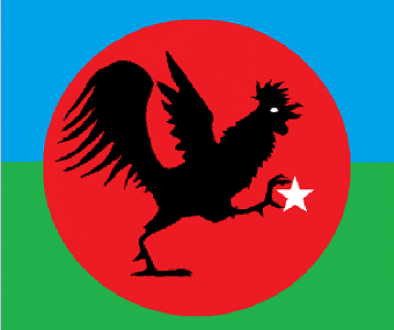Often when reading a work I’m enamored not only by the intensity of the story and the beauty of the language but also the way the rhythm of the prose lends itself to the dynamics of the story. Today I want to share such a piece. As our mission for The Ocotillo Review states, we publish writers from underserved and marginalized communities alongside award-winning writers. As an award-winning writer, poet, editor, and publisher David Meischen’s credentials are beyond question. In fact, the work he sent us was so extraordinary we were moved to publish several of his pieces. Of those we published this is my favorite. For the ultimate impact read it aloud.
Rivets
Kennedy International was hypnotic with light—escalator and turn and corridor and turn—drawing him onward toward airbridge, momentum, lift, at last the ocean vast and dark beneath his window. A pause on the tarmac at Reykjavik—Soon, he told himself, soon—overnight rail from Luxembourg to Munich, tiled surfaces of the central subway station hammering all the syllables of German, muted when the doors of his car slid shut and he rode to the stop at Odeonsplatz.
He walked the city then, a young man still, though the age he approached made his ribcage tighten, the days unfurling toward twenty-five—walking, walking—first snow in the English Gardens, the geese, the pond, the little Greek temple on its little hill beneath a perfect burnished sky. He walked Trümmerberg at Olympiapark, the athletes taken hostage here shot dead a year already, the hill beneath his feet rubble bulldozed after the Reich had fallen. And back to the walk-up on Salvatorstraße. At the table by the window, much talking—the words for what he wanted to say sealed away somewhere, the way his body felt when the man he’d come here to see looked at him, smiled. What his hands wanted to do then, where he wanted to put them, how he stared at the man’s fingers playing lightly over the tablecloth as if touch were the easiest thing in the world.
They had words for books, philosophy, the muddle of their century, words for themselves, even—for the heady days of first friendship when they’d gone everywhere together, mapping lives that took them nowhere near each other. The words continued after sundown, often with beer, often a glass raised between them. He favored an unfiltered little burn in the belly called Sternweisse. One night, carousing, he tweaked a shiny bronze nose much fingered by tourists and drunks, stood laughing where a stone boy stood pissing in a fountain, the hand on his shoulder a fever he tried to memorize.
The walk-up on Salvatorstraße. It was no more than a room—so little space, these nights after drinking, between him and the man who smiled but gave no other sign They had come to an edge. Life beyond, where two bodies might divest themselves of clothes and merge—that life was squared off like a cartographer’s dream of what can be known, with scaled creatures at the border, flame-tongued, to turn a tempted traveler back. A week more. Another. He packed his duffel and reversed himself—night train from Munich, Icelandic Airlines out of Luxembourg. Coming up out of Reykjavik, the jet began to shake, circled, shaking as if to free itself of rivets, turned back. On the runway when the plane came down, everywhere, fire trucks, foam trucks, ambulances crying out against stillness—head lights and blue lights and red lights coming for him. He would have traded his ticket; a rowboat would have served. Anything but the shaking he’d been through. Any place safe.
David Meischen received the 2017 Kay Cattarulla Award for Best Short Story from the Texas Institute of Letters. A chapter of his memoir in progress is a current nominee for the Pushcart Prize—The Gettysburg Review, Autumn 2016. Meischen’s work has appeared in Borderlands, Copper Nickel, Southern Poetry Review, Bellingham Review, Salamander, Valparaiso Fiction Review, and elsewhere. Co-founder and Managing Editor of Dos Gatos Press, he lives in Albuquerque, NM, with his husband—also his co-publisher and co-editor—Scott Wiggerman.


